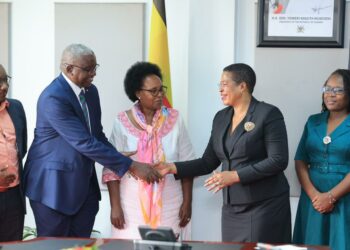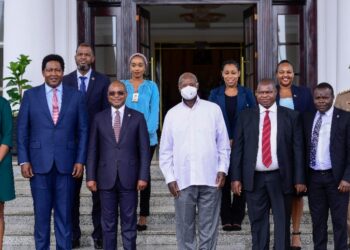The African Commission on Human and Peoples Rights (ACHPR) has demanded that the Government of Kenya effectively enforce regulations in regard to the controversial American chain of private schools Bridge International Academies as a measure to guarantee quality education in Kenya.
In a report issued last week, ACHPR expressed concern over the “lack of monitoring and effective regulation of private school chains, such as Bridge International Academies”. The ACHPR was particularly concerned that Bridge schools “register as non-formal schools, whereas they appear to offer formal education”. This raises concerns on the compliance of Bridge International Academies with the protection of the right to education under Kenyan national law, including articles 43 and 53 of the Constitution as well as Sections 5 and 7 of the 2013 Basic Education Act.
Bridge runs over 400 schools in Kenya, whose legality has been questioned in the last month. A government document from July 2017 showed that most of these Bridge schools appear to not be registered, despite having been in operation for several years. In February, a court order allowed the county of Busia, in Western Kenya, to close 10 schools. In a similar move, a High Court order allowed in November 2016 the Government of Uganda to close all of the 63 Bridge International Academies in the country.
The ACHPR report also urges the Kenyan Government to “ensure monitoring of Bridge International Academies regarding their system and methods of education”.
Linda Oduor Noah of EACHRights commented: “We’ve repeatedly raised concerns about the lack of transparency and potential illegalities of the operations of Bridge Academies, and the attempt to make profit from marginalised and underprivileged children in Kenya. The African Commission on Human and Peoples’ rights has rightly noted that this is a major human rights concern and a violation of the rights of children to quality education in Kenya, and we hope that the Government will take action to protect our children.”
The report known as concluding observations, following the review of Kenya’s 8th to 10th State Periodic Report to the ACHPR comes against a background of mounting concerns by UN bodies over commercialization of education in Kenya and in Africa.
Zulekha Amin of Hakijamii said: “The registration of schools operated by non-State actors must be conditional on full compliance with national standards. Evidence of compliance must be maintained at all times and adherence to the national standards must be subject to regular monitoring. Operators who fail to adhere to the national standards must have their registration revoked”.
“Inadequacies in the public schooling system and public incentives have led to the rapid growth of so-called ‘low-cost’ sub-standard private schools funded by development aid. This has resulted in the segregation or discriminatory access to education. The Government of Kenya has a legal obligation to guarantee free mandatory education for all without discrimination”, added Martin Mavenjina, from the Kenya Human Rights Commission.
The signatory organisations call on the Kenyan Government to uphold its obligations under the African Charter on Human and Peoples’ Rights and international law as well as the Kenyan Constitution.
This requires the Government to rapidly develop and strengthen a quality public education system without discrimination. In the context of repeated concerns raised in the last two years, and as expressed by the ACHPR, the Government must also take immediate action towards Bridge International Academies if they do not comply with private school regulations and human rights requirements regarding quality basic education.
Do you have a story in your community or an opinion to share with us: Email us at editorial@watchdoguganda.com











